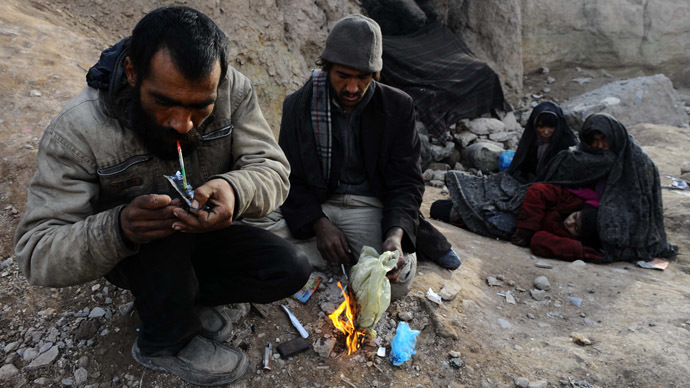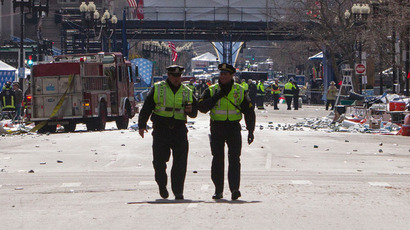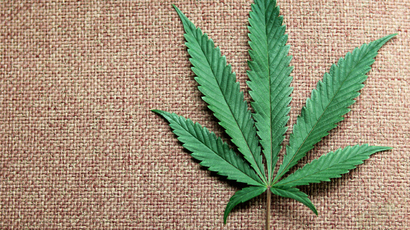Russian anti-drug chief urges new plan to counter Afghanistan drug threat

The head of Russia’s anti-drug service says the international community must concentrate on fighting “planet-scale” centers producing illegal drugs, such as Afghanistan.
Fighting the "planet scale" drug centers should be promoted at the UN Security Council and it should become an absolutely independent top priority issue, Viktor Ivanov said at a Moscow meeting of experts Tuesday. The Russian anti-drug head also urged foreign colleagues “to jointly develop a common plan on liquidating such centers by the reorganization of national and social development” which is codenamed Rainbow-3.
In addition Ivanov called upon all countries interested in countering the drug threat to create a global alliance for alternative development of Afghanistan through forced industrialization.
The code name Rainbow-3 has been chosen because Russia has previously put forward the Rainbow-2 plan that consisted of listing Afghanistan drug crops as a threat to the international peace and security with the UN SC, development and implementation of a major aid and reform program for Afghanistan’s economy, and creating at least 2 million jobs for former opium farmers and drug traffickers.
Other measures included an international sanctions list targeting landlords who profit from drug production, and also making the destruction of opium and marijuana fields an official objective for the International Security Assistance Force.
Last week the Russian Federal Drug Control Service suggested that the United States was deliberately destroying the international anti-drug cooperation in order to hide its responsibility for the drug crisis in Afghanistan.
The statement was made soon after the United States announced it was extending the list of people subject to sanctions in connection with the Ukrainian crisis and the accession of the Republic of Crimea into the Russian Federation. The new blacklist included Viktor Ivanov, who is also co-chairing the workgroup of the Russia-US Presidential Commission on countering the illegal drug trade.
The Russian agency described the move as an “arbitrary and thoughtless action” destroying the unique experience in international police cooperation and noted that the only possible explanation could be the “fear of responsibility for the 40-fold explosive increase of illegal drug production in Afghanistan since this country’s occupation by the US and NATO forces in 2001.”














